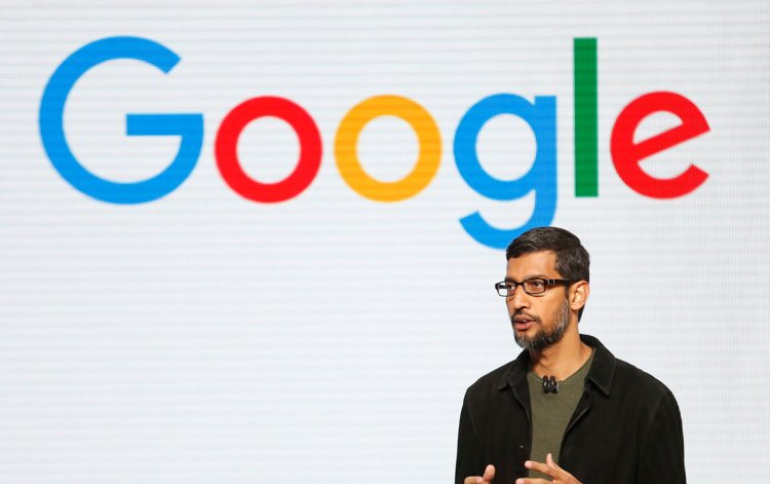
European Commission Fines Google $5 billion For Illegal Practices Regarding Android Devices
The European Commission (EC) has fined Google €4.34 billion ($5 billion) for breaching EU antitrust rules and by using its Android mobile operating system to squeeze out rivals.
The EC concluded that since 2011, Google has imposed illegal restrictions on Android device manufacturers and mobile network operators to cement its dominant position in general internet search.
Google must now bring the conduct effectively to an end within 90 days or face penalty payments of up to 5% of the average daily worldwide turnover of Alphabet, Google's parent company.
Commissioner Margrethe Vestager, in charge of competition policy, said: "Today, mobile internet makes up more than half of global internet traffic. It has changed the lives of millions of Europeans. Our case is about three types of restrictions that Google has imposed on Android device manufacturers and network operators to ensure that traffic on Android devices goes to the Google search engine. In this way, Google has used Android as a vehicle to cement the dominance of its search engine. These practices have denied rivals the chance to innovate and compete on the merits. They have denied European consumers the benefits of effective competition in the important mobile sphere. This is illegal under EU antitrust rules."
Google said it would appeal the fine.
"Android has created more choice for everyone, not less. A vibrant ecosystem, rapid innovation and lower prices are classic hallmarks of robust competition," it said. We will appeal the Commission's decision".
According to the european regulators, Google:
has required manufacturers to pre-install the Google Search app and browser app (Chrome), as a condition for licensing Google's app store (the Play Store);
made payments to certain large manufacturers and mobile network operators on condition that they exclusively pre-installed the Google Search app on their devices; and
has prevented manufacturers wishing to pre-install Google apps from selling even a single smart mobile device running on alternative versions of Android that were not approved by Google (so-called "Android forks").
Google obtains the vast majority of its revenues via its flagship product, the Google search engine. The company understood early on that the shift from desktop PCs to mobile internet, which started in the mid-2000s, would be a fundamental change for Google Search. So, Google developed a strategy to anticipate the effects of this shift, and to make sure that users would continue to use Google Search also on their mobile devices.
In 2005, Google bought the original developer of the Android mobile operating system and has continued to develop Android ever since. Today, about 80% of smart mobile devices in Europe, and worldwide, run on Android.
When Google develops a new version of Android it publishes the source code online. This in principle allows third parties to download and modify this code to create Android forks. The openly accessible Android source code covers basic features of a smart mobile operating system but not Google's proprietary Android apps and services. Device manufacturers who wish to obtain Google's proprietary Android apps and services need to enter into contracts with Google, as part of which Google imposes a number of restrictions. Google also entered into contracts and applied some of these restrictions to certain large mobile network operators, who can also determine which apps and services are installed on devices sold to end users.
The Commission decision concerns three specific types of contractual restrictions that Google has imposed on device manufacturers and mobile network operators. These have enabled Google to use Android as a vehicle to cement the dominance of its search engine. In other words, the Commission decision does not question the open source model or the Android operating system as such.
The Commission decision concluded that Google is dominant in the markets for general internet search services, licensable smart mobile operating systems and app stores for the Android mobile operating system.
More significantly, Google was given 90 days to stop what the EU said were "illegal practices" on contracts with handset manufacturers that push Google services in front of users.
Other Google cases
In June 2017, the European Commission fined Google €2.42 billion for abusing its dominance as a search engine by giving an illegal advantage to Google's own comparison shopping service. The Commission is currently actively monitoring Google's compliance with that decision.
The Commission also continues to investigate restrictions that Google has placed on the ability of certain third party websites to display search advertisements from Google's competitors (the AdSense case). In July 2016, the Commission came to the preliminary conclusion that Google has abused its dominant position in a case concerning AdSense.




















